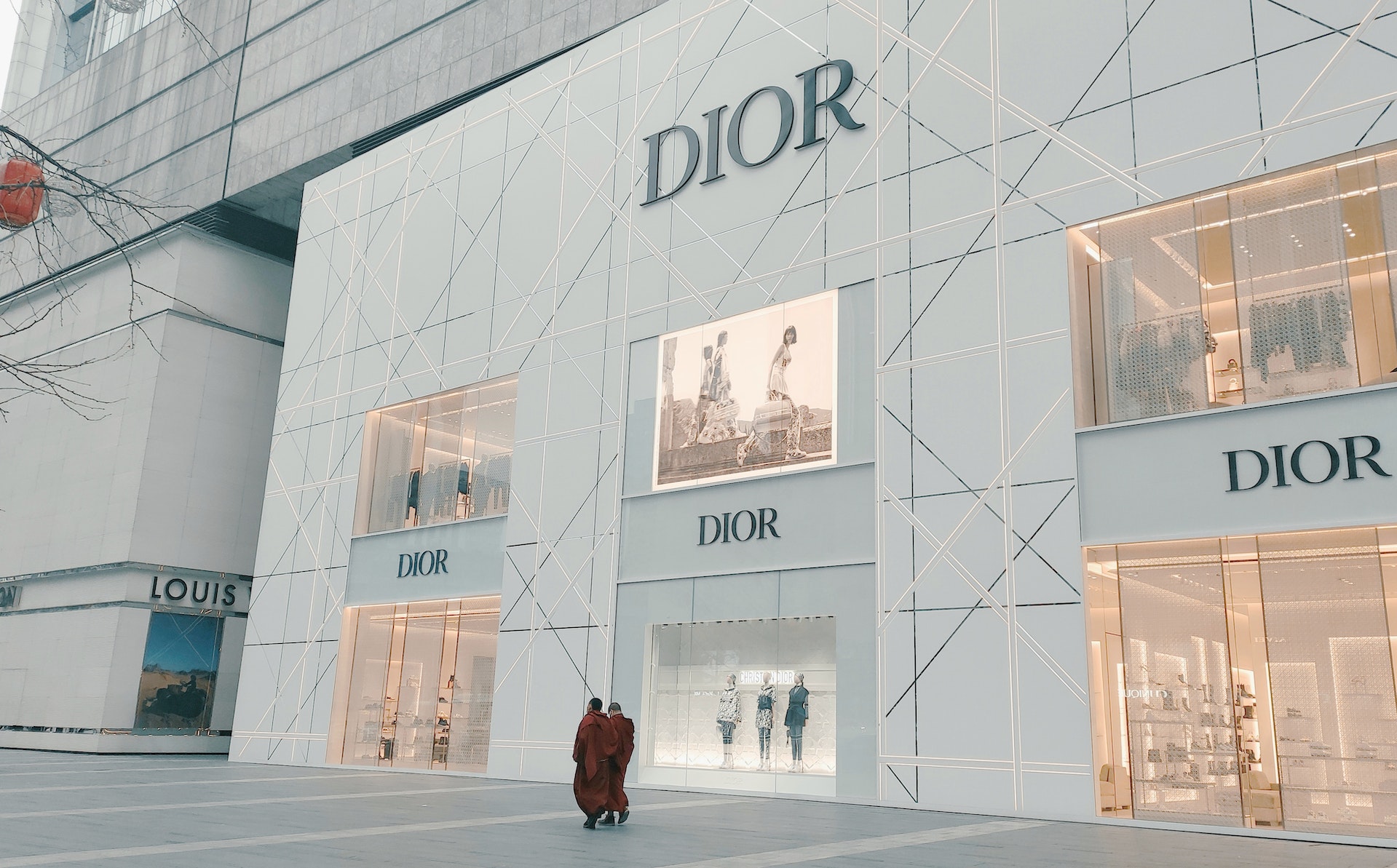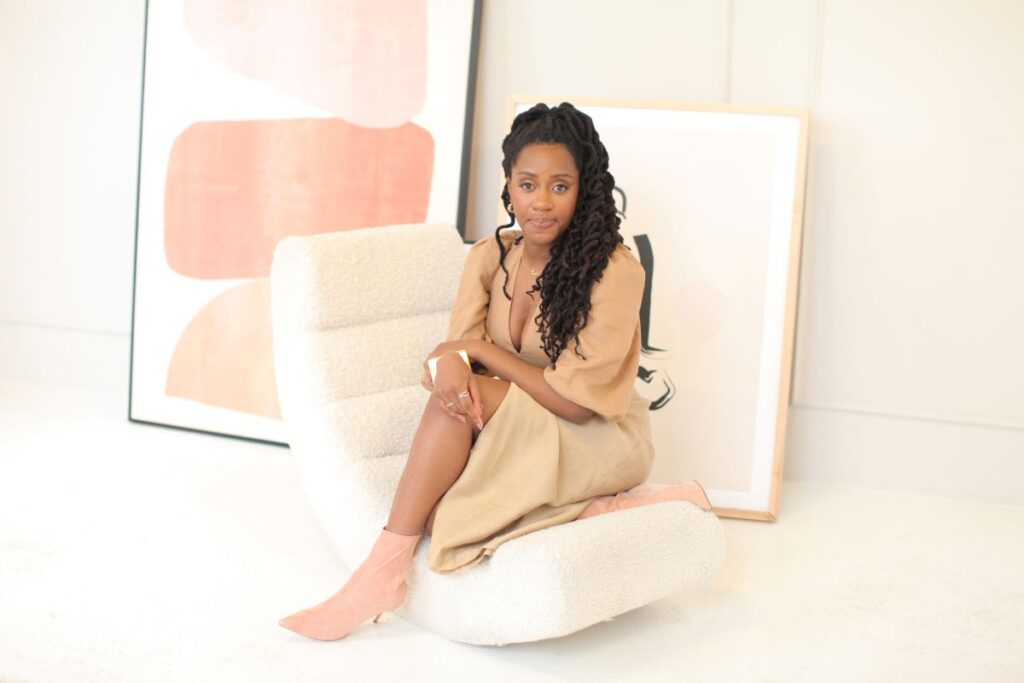Ashley Alexis McFarlane is the creative mastermind behind Omi Woods, a sustainable African-inspired, fine jewelry brand. McFarlane considers herself an accidental entrepreneur who has always had a love for clothes and jewelry. In fact, before the brand was called Omi Woods, it was a clothing brand called Asikere Afana. “I couldn’t always buy the pieces that I liked, or I didn’t always see the pieces that I liked in stores. So, a friend gave me a sewing machine and I ended up starting to sew some African print clothes. From then, a friend asked me for a [garment], and I ended up putting pieces on Etsy and selling them,” states McFarlane. As the clothing brand developed, she launched a couple jewelry pieces, which sold well. From then on, McFarlane focused solely on jewelry over apparel because she found an ease in doing so, and it aligned with her life interest
Do you have any favorite fashion pieces in your closet that, to you, are timeless?
I think a black slip dress is really timeless, and you can dress it up and down. I love furry sweatpants—they just came on the scene. People don’t know, but you can dress it up with a nice, more sophisticated top [laughs]! I’m still not over COVID-comfy dressing. I hope casual-comfy dressing stays timeless.
What other things can I not live without? I love a nice cropped leather jacket. I have a camel Mackage fall jacket that I think is so well cut. I think Mackage makes the best coats. They’re wellmade and sustainable because—I don’t know if many people know this—but [the jackets] have a lifetime warranty on them, and you can just keep on getting them repaired.
I do [also] like a Chanel Reissue handbag. It’s designed in a way that can be dressed up or down. You can wear it with sweatpants. You can wear it super dressy to a wedding. It’s edgy, but it’s classic and sophisticated. It’s functional in the sense that it can be crossbody or put over your shoulder, [or] made into a little clutch. And, you know, when you open the bag, even when it’s open, it’s still functional. It’s just such a good bag for the working woman or a leisure woman
I like Adidas—some white, clean sneakers. I like a knit dress made with a bodycon scoop neckline or sometimes even a boat neckline. You can wear that for work, or you can dress it up when you’re traveling, and it travels so well because it doesn’t wrinkle. It lasts so long because it’s knit, and you can get away with wearing it in the summer or the winter.
Who has influenced your style as a designer?
I’m super interested in art. I love sculpture, architecture, and form. I’m interested in heritage and culture and antique jewelry from around the world. I really find it phenomenal.
I started the [jewelry] line really because my grandma was passing on jewelry to me and my aunts. I’m inspired by different people throughout history, I’d say, but not necessarily a [particular] person.
What advice do you have for others looking to start a handmade accessories business?
I would say, if you want to do a hobby and have your part-time job, you can do whatever you want. Just have fun, explore. Go to school if you really want to master your craft; get some sort of training, even if it’s jewelry, just to have a general understanding of it. It just shows so much respect to the people that you may be working with, and to the craft. You don’t even have to go to [traditional] school, so much stuff is online now. If you want to make it a business, study the fundamentals of business. There are books out there like Business Model Generation: A Handbook for Visionaries, Game Changers, and Challengers that will teach you the fundamentals. And a lot of people are like, “Okay, let’s start with social media and marketing, and getting my audience”. But, really, the fundamentals of business are you’re solving a problem for a customer or client at the price that they’re willing to pay for that problem to be solved. And as long as you get that, you will be able to continue to grow your business. You’ll continue to have a business over a hobby.
I find that a lot of folks come in and they want to start a business, but it’s kind of challenging now because everyone has a business, so everyone’s solving a problem. So, it’s kind of hard to be like, “What is the [other] problem that needs to be solved?” But then at the same time, if you think you’re solving the problem better than your competitor, then do that.
Josephine Mwanvua | Contributing Writer








